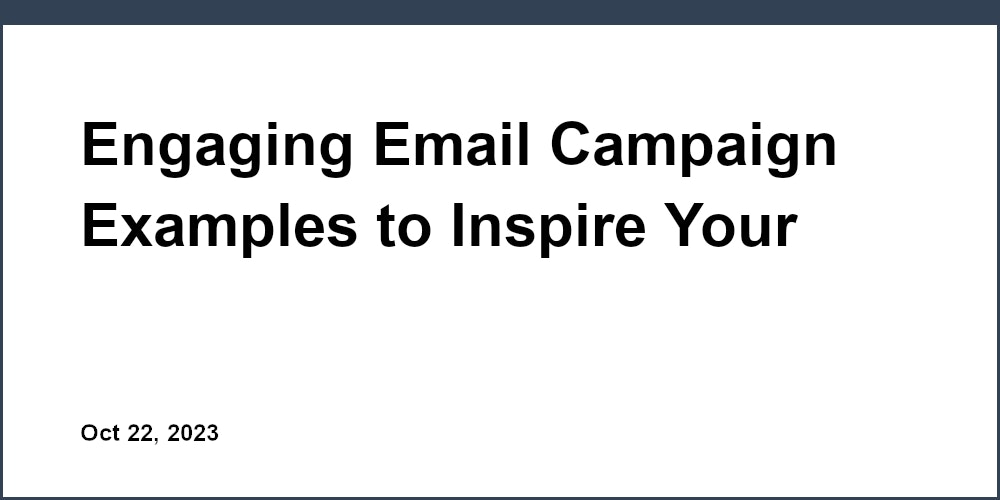Introduction: The Power of CRM Email Marketing
Email marketing remains a highly effective channel, delivering $36 in revenue for every $1 spent. By integrating email campaigns with customer relationship management (CRM) data, marketers can optimize messaging and targeting to drive more conversions. 📈
Leveraging behavioral data from the CRM provides insights to create more relevant, personalized outreach at scale. CRM systems aggregate customer information like demographics, purchase history, and engagement data to build 360-degree profiles. These profiles power dynamic segmentation and customization of email campaigns. Proper integration allows seamless execution of triggered campaigns based on subscriber actions.
For example, an e-commerce company can track when a customer abandons their cart and automatically send a follow-up email with their cart contents. Or subscribers can be tagged based on their interests so they only receive content relevant to those preferences. The detailed data from CRM systems unlocks these capabilities.
Benefits of a CRM-Powered Email Marketing Strategy
Integrating email marketing with a CRM provides numerous benefits that drive higher campaign performance:
-
360-degree view of customer interactions across channels - Email data combines with info from sales, support, social media, web analytics, and more to create unified customer profiles. This enables precise segmentation and personalization.
-
Dynamic customer segmentation for targeted campaigns - Detailed CRM data facilitates grouping contacts by demographics, behaviors, preferences, and other attributes for targeted messaging. For example, an athletic apparel brand could segment customers based on preferred sports, frequency of purchases, past spending amounts, and more.
-
Automated workflows based on customer behaviors and preferences - Workflows trigger tailored campaigns when users take actions like downloading an asset, abandoning a cart, or opening specific emails.
-
Personalized content and offers tailored to individual contacts - Merge fields pull CRM data into emails to provide customized recommendations and promotions based on each subscriber's profile.
-
More effective lead nurturing aligned to each prospect's journey - Lead scoring and defined lead stages enable automated nurturing tracks with messages appropriate for prospects at different stages.
Enhanced Deliverability Through Accurate Data
CRM integration also enhances critical factors for optimizing deliverability by improving data accuracy:
-
Cleaner data from CRM system helps email authentication - Accurate subscriber data reduces bounces and spam complaints for better sender reputation. Verified double opt-ins also assist deliverability.
-
More accurate subscriber engagement data improves sender reputation - Tracking opens, clicks, and conversions provides quality user engagement metrics to email providers. This demonstrates an active, engaged list.
-
Relevant content results in higher open and click-through rates - Personalized messaging aligned to subscriber interests drives more engagement. Active users signify a legitimate sender.
-
CRM data verifies subscriber opt-ins for compliance - Integration ensures contacts are double opt-in and compliant with regulations like GDPR. Proper consent helps deliverability.
Data-Driven Decision Making
Furthermore, CRM analytics enable better optimization of campaigns:
-
CRM analytics identify high-value segments to prioritize - See which groups have higher engagement and conversion rates to focus marketing efforts.
-
A/B testing subject lines, content improves campaign ROI - Evaluate different versions against target segments in the CRM to refine messaging.
-
Tracking campaign performance guides future initiatives - CRM reports detail email metrics to calculate metrics like ROI, conversion rates, and subscriber lifetime value.
-
Measuring metrics like CTR and conversions optimize programs - Detailed CRM data calculates email marketing ROI and the impact on lead gen or revenue goals.
Key Features of CRM Email Marketing Platforms
To execute CRM-integrated email marketing strategies, the email service and CRM system should provide key capabilities:
-
Built-in templates and drag-and-drop editor to create campaigns - Well-designed emails drive more engagement, and templates accelerate campaign creation.
-
Contact management with tagging and list segmentation capabilities - Organize contacts with custom tags, and place them into different dynamic segments for targeted messaging.
-
Automation based on events, schedules, or customer actions - Workflows send tailored follow-ups when users complete actions like downloading a gated asset.
-
A/B testing and optimization tools to refine messaging - Test different subject lines, content variations, layouts, etc. based on open and click-through rates.
-
In-depth analytics on opens, clicks, conversions and more - CRM analytics integrate email data to calculate metrics like ROI, conversion rates, and subscriber lifetime value.
Campaign Personalization
Automating personalized content improves relevancy:
-
Dynamic content insertion from CRM data - Populate personalized fields in emails with subscriber info like name, company, purchase history, etc.
-
Versioned email content for targeted segments - Send customized content blocks to different segments based on user attributes and behaviors.
-
Personalized subject lines with merge fields - Increase open rates by dynamically inserting subscriber names, locations, interests, etc.
-
Customized product recommendations based on purchase history - Promote relevant products based on each user's previous purchases and online behaviors.
-
Transactional emails triggered by user behaviors - Automate cart abandonment, post-purchase, anniversaries, and other 1:1 emails.
Lead Management Integration
CRM can nurture leads directly from email engagement:
-
Lead scoring and nurturing workflows - Track email opens, clicks, and conversions to calculate lead scores and automate nurture tracks.
-
Alerts for sales when a lead interacts with a campaign - Notify reps when prospects engage with specific emails so they can follow up promptly.
-
CRM tracking of email engagement activities - Sync opens, clicks, email-to-website visits, and form fills with each contact record.
-
Updating lead stage based on email conversions - Advance leads through the funnel when they complete email-driven conversions like downloads.
-
Routing leads automatically based on profile and activity - Assign leads to appropriate reps and workflows automatically based on lead data, attributes, and email engagement.
Top CRM and Email Marketing Platforms
Selecting integrated platforms is key for unified CRM email marketing. Top solutions include:
-
Salesforce Marketing Cloud - Robust CRM and email capabilities through the Salesforce ecosystem. Offers journey builder automation.
-
Oracle Eloqua - Leverages AI and machine learning for segmentation and campaign automation. Part of Oracle CX.
-
Adobe Campaign - Tightly integrated with Adobe Experience Cloud and analytics. Focus on segmentation.
-
HubSpot - Free CRM plus paid email marketing and workflow automation. Great for small businesses.
-
Sensorpro - Unlimited contacts and compliant EU data storage. Specializes in deliverability.
Setting Up CRM Email Marketing
Proper setup ensures seamless execution:
-
Map email and CRM data fields for integration - Match subscriber data across systems.
-
Set up triggers for campaign activation from CRM - Create workflows to respond to contact actions.
-
Build segments and automation based on CRM data - Leverage 360-degree profiles.
-
Enable dynamic content and personalization with merge fields - Individualize messaging.
-
Connect support and sales teams to track prospect engagement - Unify visibility.
Executing and Optimizing Campaigns
Continual testing and optimization improves performance:
-
Send A/B test versions to sample segments - Evaluate subject lines, content.
-
Analyze metrics and engagement by customer profile - Identify high-value targets.
-
Adjust targeting, content frequency based on CRM data - Serve relevant content.
-
Update contact scores or stages based on email engagement - Advance leads.
-
Refine automations with new triggers identified in analytics - Iterate campaigns.
Conclusion and Key Takeaways
Integrated CRM email marketing enables highly relevant and personalized campaigns through unified data-driven automation and segmentation. This drives increased engagement, conversions, and revenue.
Key takeaways include:
-
Automation and personalization convert more leads to customers
-
CRM data enables better segmentation, targeting, analytics
-
Testing and optimizing based on metrics improves performance
-
Selecting the right platform is essential to execute CRM-driven email
Marketers looking to streamline email marketing efforts should explore solutions like Sensorpro that specialize in deliverability, automation, and CRM integration to optimize the impact of campaigns. By leveraging the powerful capabilities of integrated CRM and email marketing platforms, brands can nurture more prospects into customers with targeted, personalized messaging that resonates.


